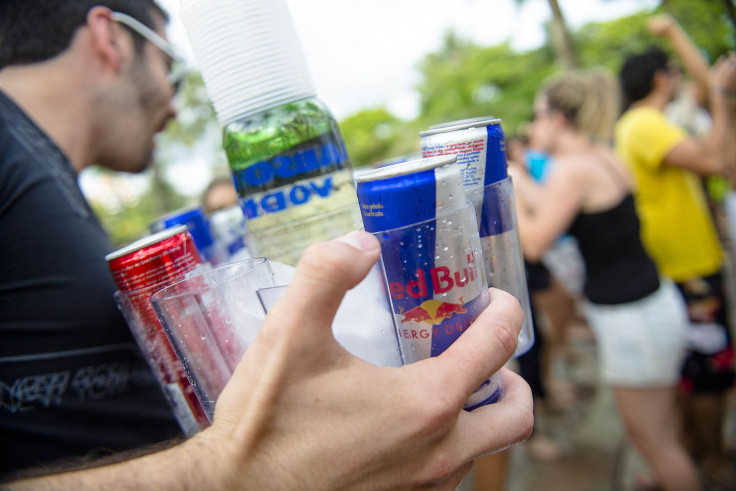Energy Drinks Linked To An Increased Incidence Of TBI In Teen Athletes And Trouble Recovering

Traumatic brain injuries (TBI) are a growing problem among adolescents, especially those who are athletes. These athletes, it turns out, also have a tendency to drink energy drinks, which makes researchers wonder: Are the two somehow related? Publishing their study in the journal PLOS ONE, a team of researchers from St. Michael’s Hospital may have not only found a link, but evidence to suggest it impede’s recovery as well.
Incidences of TBIs in the U.S. and Canada have been a cause for concern, as rates have increased 57 percent among teens between 2001 and 2009. Researchers found that, out of a 2011 sample of Canadian students, one in five had sustained a TBI within their lifetime — most of the injuries occurred while playing sports.
Energy drink consumption has also increased during this time, especially among the adolescent sports population. In 2010, researchers found that 16 percent more energy drinks were sold since the previous year in the U.S. and Canada, amounting to a $9 billion industry. Previous research has found links between drinking energy drinks and injuries in adolescents, and that teens who drink these products are more likely to engage in risky behaviors. What’s more, researchers believe energy drinks, especially when combined with alcohol, could prolong recovery in teens who have experienced a TBI.
For their study, the team sought to uncover the connection between TBIs and energy drinks a bit further. So they collected data from the Centre for Addiction and Mental Health’s 2013 Ontario Student Drug Use and Health Survey, which recruited over 10,000 students between the ages of 11 and 20 to answer a questionnaire. Through the questionnaire, researchers were able to evaluate TBI history, along with energy drink and alcohol consumption.
They found that teens who reported experiencing a TBI within the last year were seven times more likely to have consumed five or more energy drinks over the past week. Those with a TBI history from the previous year were also two times more likely to drink those energy drinks mixed with alcohol. These statistics also increased when the researchers accounted for teens who played sports. Ultimately, they found that teens who experienced a sports-related TBI in the last year were twice as likely to consume energy drinks as those who received TBIs from other circumstances.
“Energy drinks have high dosages of caffeine, Taurine, Guarana and other stimulants, and we really don’t know what the effects of these stimulants really are on the brain short- and long-term,” Dr. Gabriela Ilie, of the Division of Neurosurgery at St. Michael’s Hospital, told Medical Daily . “Mix them with alcohol (a depressant) and suddenly the effects of energy drinks alone pale in comparison to the physical and emotional risks posed by this mixture to a developing brain.”
Researchers also noted that 22 percent of all the students who participated in the survey reported having a TBI within the past year, over half of which were related to sports. As for the link with energy drink consumption, the researchers were concerned with how this could possibly impact recovery.
"Energy drinks, such a Red Bull and Rockstar, contain high levels of caffeine and change the chemical state of the body, which can prevent people from getting back on track after a TBI," said Dr. Michael Cusimano. a neurosurgeon at St. Michael’s Hospital. "Brain injuries among adolescents are particularly concerning because their brains are still developing."
Overall, the researchers hope that by better understanding the link between TBIs and energy drink consumption, they can help to prevent these sorts of injuries while also helping those who have experienced them recovery better.
“Our data suggests… that energy drinks consumption and energy drinks mixed with alcohol contribute to the occurrence of TBI among teens.” Ilie said. “The limitation of our study, however, is that we don’t know which came first. The direction of this relationship goes both ways.” For example, Ilie says that a teen may drink energy drinks to compensate for the lack of energy that often comes when you experience a TBI. But, alternatively, overstimulation from energy drinks may also make you more prone to injury. She notes that with more research, the team will be able to better ascertain the connection overall.
Source: Ilie G, Cusimano M, Mann R, et al. Energy drinks, alcohol, sports and traumatic brain injuries among adolescents. PLOS ONE. 2015.



























